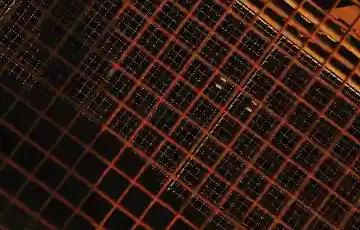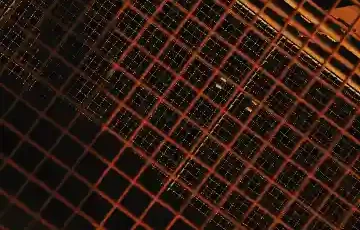
Several sources shape the legal framework governing product liability in the Netherlands. The Dutch Civil Code (Article 6:185 BW) lays down the main rules, directly implementing the European Product Liability Directive. Under Dutch law, manufacturers must compensate for damage caused by defects in their products. Dutch courts have developed extensive case law in this field. The Netherlands applies a system of strict liability—known locally as “risicoaansprakelijkheid.” Roughly 12% of all personal injury cases in the Netherlands involve this form of liability.
Exceptions to Product Liability under Dutch Law
Dutch law lists specific exceptions. Manufacturers escape liability if their product never entered the market, if the defect did not exist at the time of delivery, or if the defect developed later. When a manufacturer distributes a product for non-commercial purposes, they are not liable. Additionally, manufacturers can invoke compliance with government regulations or the lack of available scientific knowledge at the time. If the injured party, or someone for whom they are responsible, partly causes the damage, the court may reduce the manufacturer’s liability. However, third-party involvement does not limit this liability.
Is a Manufacturer Liable Without a Direct Contract under Dutch law?
Businesses often ask Dutch lawyers whether a manufacturer remains liable if there is no direct purchase agreement with the injured party. The answer under Dutch law is yes. Companies can hold manufacturers liable even when a distributor supplied the product. Claims may rely on tort, as described in Article 6:162 BW. This ground differs from product liability, which lets injured parties sue manufacturers directly. In about 26% of Dutch B2B product claims, no direct contractual relationship exists between the claimant and the manufacturer.
Real-World Example: Damage in the High-Tech Sector
A manufacturer delivers a precision component to a supplier in the medical technology sector. The component becomes part of a diagnostic device, which hospitals use worldwide. Corrosion appears after use, causing the loss of patient data. The hospital, which purchased the device via an intermediary, holds the manufacturer liable. In this example, the claim relies on tort, not contract law. Such cases frequently lead to claims exceeding one million euros.
When Do You “Place a Product on the Market” in the Netherlands?
In the Netherlands, a product enters the market once the manufacturer completes the production process and the item joins the distribution chain. Delivery can occur directly to the end user or through intermediaries—both situations meet the legal definition. Data from the European Commission show that in 31% of all claims, the manufacturer supplied only to distributors.
Damage from Defective Products: Two Legal Routes in the Netherlands
If a defective machine or material causes harm, Dutch law offers two legal routes. The buyer can invoke contractual liability or file a tort claim. In practice, most businesses opt for the latter. Over 40% of business-related damage claims in the Netherlands directly target the manufacturer, skipping the selling party.
Breach of Contract under Dutch law or Force Majeure?
If a manufacturer delivers a product late, with defects, or not at all, Dutch law classifies this as a breach of contract. The manufacturer bears liability if they can be blamed for the shortcoming. Force majeure—such as production problems caused by COVID-19—removes this liability. The specific circumstances determine whether force majeure applies. Always seek advice from an experienced contract law attorney in the Netherlands.
Business-to-Business Transactions Fall Outside Dutch Product Liability?
The statutory product liability rules in the Netherlands apply only to private consumer claims. For business sales of machinery or industrial installations, general liability law governs. Manufacturers face claims for breach of contract or tort, not product liability. Dutch attorneys refer to the Dutch Civil Code’s product liability rules in only 22% of business claims.
Tort under Dutch law: An Alternative Legal Basis
Dutch law also holds manufacturers liable when normal use of their product, component, or semi-finished part causes damage. Supplying unsafe products counts as an unlawful act towards users. Dutch courts apply this legal basis in over 34% of product damage cases.
Damages: Why Manufacturers Must Stay Vigilant
If a manufacturer acts negligently and causes damage, Dutch law requires them to compensate the injured party. This usually occurs when manufacturers neglect safety measures or fail to carry out adequate controls. Their actions make them liable for resulting losses. In the Netherlands, the average damages awarded in these cases total around €89,000 per incident.
Profit Generation Entails Taking Risks
Manufacturers who produce for profit must accept certain risks. Under Dutch law, anyone who benefits from production must also take responsibility if things go wrong. Careful contract management, robust risk controls, and strict product safety compliance remain essential. Always seek guidance from a law firm in the Netherlands.
Need Legal Advice on Product Liability in the Netherlands?
MAAK Advocaten assists manufacturers, distributors, and purchasers in the Dutch manufacturing sector with product liability issues. Understanding Dutch product liability law is not always straightforward—especially with developments like the WAMCA, which allows collective actions. Our law firm in Amsterdam provides legal advice on product liability, damages, contractual risks, and tort. We also represent clients in litigation in the Netherlands regarding disputes and claims involving defective products.









